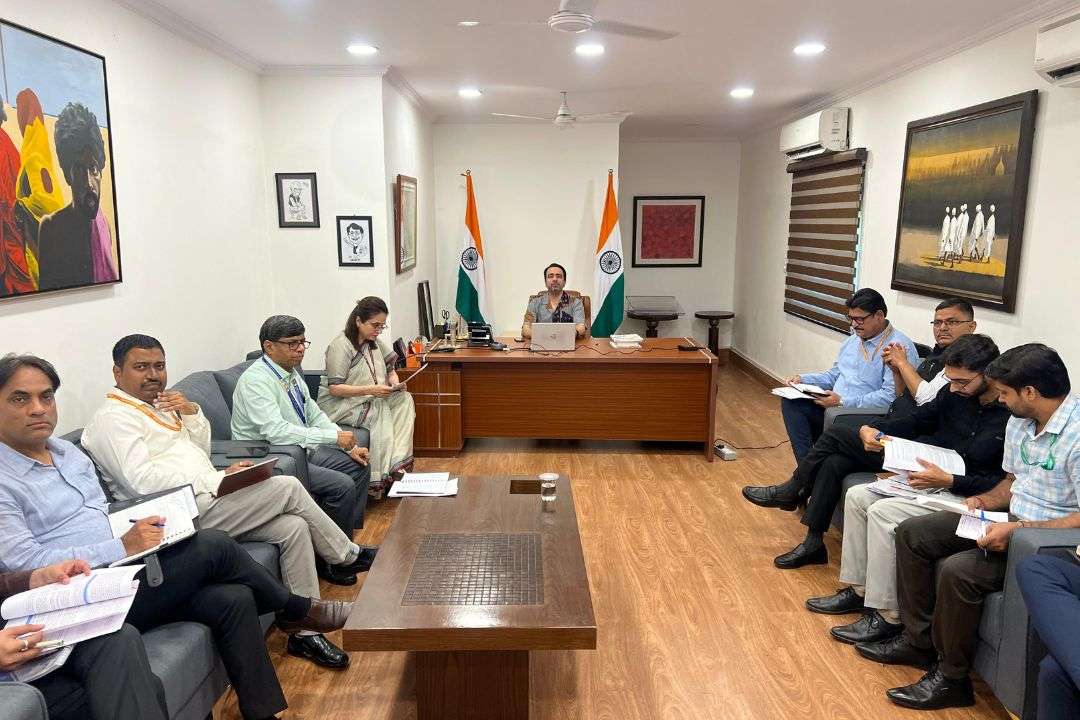Jayant Chaudhary, Minister of State (Independent Charge) for Skill Development and Entrepreneurship, today chaired a high-level session called Skill Milan with the leaders of five National Skill Training Institutes (NSTIs) chosen for conversion into National Centres of Excellence (NCoEs). This upgradation comes under the National Scheme for ITI Upgradation, approved by the Union Cabinet on May 7, 2025.
The session focused on aligning these institutes with strategic goals to ensure that India’s skill development ecosystem remains future-ready and globally competitive. The discussions primarily revolved around the upgrading of the selected NSTIs to enhance the quality and quantity of qualified instructors, facilitate industry collaboration, and cater to sector-specific skills, ensuring that these institutes meet current and future workforce needs.
These five NSTIs will receive enhanced training infrastructure, specialized programs, and a focus on instructor excellence, all aimed at preparing the next generation for a rapidly changing job market. As National Centres of Excellence, these institutes will be at the forefront of India’s ₹60,000 crore skill development initiative, driving innovation and setting benchmarks for vocational training.
Shri Chaudhary called this initiative a “once-in-a-lifetime opportunity” to transform the technical training landscape in India. He emphasized the importance of shifting the focus from merely building infrastructure to ensuring institutional excellence. “These Centres should lead the way in skill development, driving employability, global competitiveness, and innovation,” he said.
The Minister underscored the need for the Centres to be aligned with industry-specific needs, particularly in sectors such as automotive, manufacturing, textiles, as well as emerging fields like Artificial Intelligence (AI), electric vehicles (EV), and advanced manufacturing. The centres will also support entrepreneurship, lifelong learning, and offer a pathway from basic certifications to advanced diplomas, all in line with the National Credit Framework.
Shri Chaudhary further emphasized the necessity of industry participation in the upgradation process, highlighting the importance of collaborations between NSTIs, state governments, and local industries. The goal is to create sustainable and locally relevant industry-institution partnerships that cater to regional economic priorities.
Representatives from the five NSTIs, located in Bhubaneswar, Chennai, Hyderabad, Kanpur, and Ludhiana, shared their plans for the upgradation. They discussed aligning curricula with local industries, providing instructors with global exposure, and setting up Centres for Industrial Collaboration to ensure practical learning opportunities and better recruitment pathways. Several representatives also stressed the significance of residential campuses to attract top-tier faculty and students from across the nation.
Once upgraded, these NSTIs will gain academic, financial, and administrative autonomy, operating under a strengthened governance framework. They will function as hubs of excellence, supporting the broader ITI network with curriculum reforms, pedagogical innovations, and flexible entry and exit points for trainees.
The Ministry reaffirmed its commitment to building a skilled, future-ready workforce through comprehensive reforms in vocational education. These Centres of Excellence are expected to play a pivotal role in realizing the vision of Viksit Bharat@2047, preparing India for the future of work.







